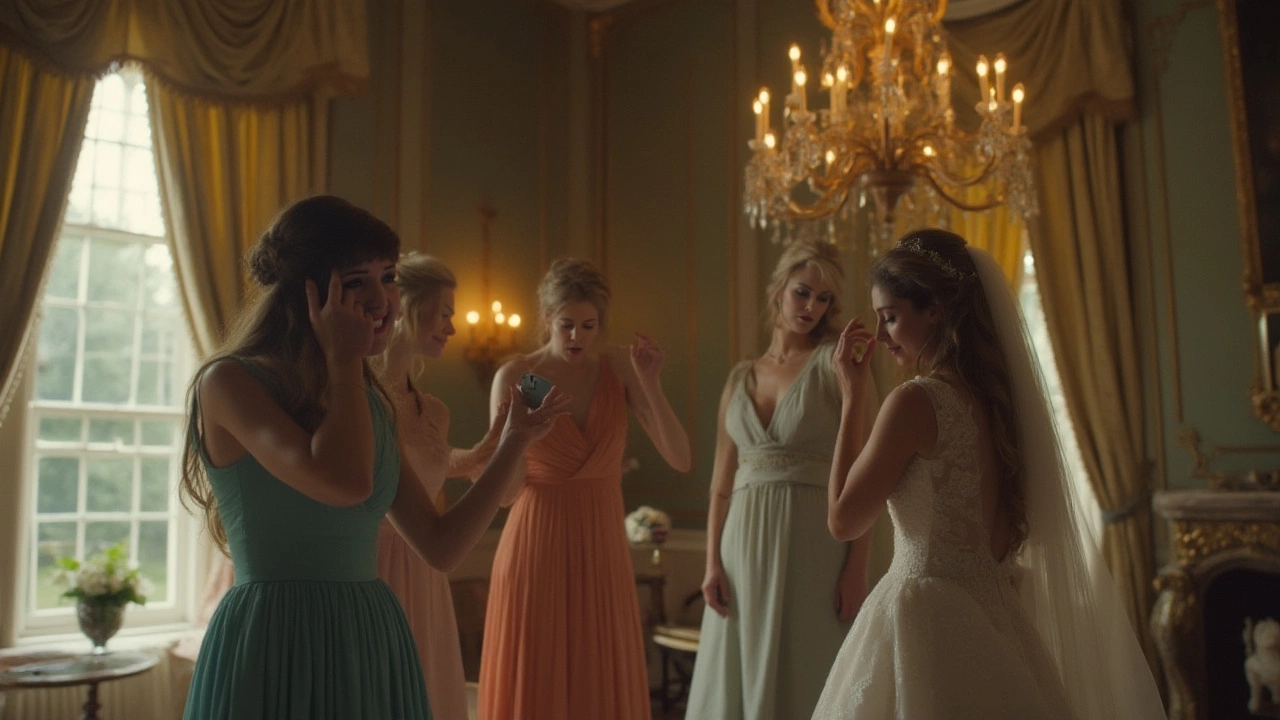If you think a wedding planner just picks out flowers and bustles dresses, you’ve only seen about 5% of what actually happens. The truth is, wedding planners are the unsung heroes behind the scenes, juggling details that would make most people’s heads spin. Strange but true: studies say couples spend an average of 528 hours planning their wedding. That’s over 22 full days. Most couples work full-time, have friends and family to keep happy, and can’t just take a month off “to sort napkins.” Enter the wedding planner. We’re not just talking about someone with a clipboard and Pinterest account. The role is packed with to-do lists, vendor wrangling, disaster-preventing, and emotional support. Entire events depend on their attention to detail and ability to put out fires you never even see.
What Does a Wedding Planner Take Care Of?
Behind every smiling bride or relaxed groom is a planner quietly holding everything together. First, there’s budgeting: a wedding planner can stretch a budget in ways most people wouldn’t imagine. They know which flowers last longest, which caterers actually show up, and how to get hidden extras taken off your bill. Budget management isn’t just about saying “no”—it’s about tricky math, negotiation, and making every dollar count, so you don’t blow your savings or end up eating cup noodles for months.
Then there’s timeline creation. You might think, “Oh, we’ll remember to book the DJ after we get the venue!” Suddenly, it’s two weeks to the date, the DJ is booked elsewhere, and your reception playlist is now Spotify on shuffle. Planners chart a minute-by-minute schedule—sometimes down to who gets to the mic first or which song cues up the cake cutting. Miss a step? Guests feel the awkwardness instantly. They also manage vendor selection and coordination. You’ve probably never hired a chair rental company before, but a planner compares dozens every year. They know who’s reliable, who delivers late, who takes liberties with your deposit. Better yet, planners often have relationships with these vendors, so you’ll sometimes get better deals or upgrades you’d never ask for on your own.
Problem-solving is part of daily life for a wedding planner. Guest got lost? Aunt spilled red wine on her dress ten minutes before photos? Best man ripped his pants? A planner has the directions, a club soda pen, and a spare needle and thread—sometimes all plucked from the same handbag. Planners have backup plans for their backup plans; this “Plan C” thinking kicks in for everything from rain at an outdoor ceremony to missing bouquets and dietary mix-ups. Some planners say, if the guests and couple don’t notice any drama, they’ve done their job perfectly.
Day-of Coordination: The Secret Sauce
The day of the wedding is when everything gets real. This is where a *wedding planner* truly earns their stripes. Early in the morning, you’ll catch them congratulating the couple as their phone buzzes with a hundred tiny emergencies. They check every vendor’s arrival, confirm the ceremony setup, lay out place cards, and even make sure the cake knife is exactly where it should be (yes, that matters).
Rehearsals don’t just magically happen. Planners organize them so nobody walks too quickly, stands in the wrong spot, or mixes up the order. This attention to detail saves major embarrassment and confusion the next day. On the wedding day, planners are directors backstage. They’re telling when grandparents need to take their seats, queuing up the processional, or checking that every candle is lit at just the right moment. If something runs late, guests never know; the planner simply reroutes the schedule like an invisible air traffic controller.
Planners often become the unofficial “emotion managers” too. Stress runs high for couples and families. Planners calm nerves, smooth out feuds, and have been known to hand out tissues, bandages, and once even a spare pair of socks. Physical emergencies? A quick fix. Emotional? Planners have a sixth sense for when a meltdown is brewing and know the words that can talk someone off the edge.
The day doesn’t end at the kiss or the cake. Planners coordinate photography lists (so no important shot gets forgotten), manage the flow of dinner, and keep the party moving. When midnight hits, they’re the last to leave—packing gifts, confirming transportation, and making sure tips get to every vendor. If you wake up the next day with only happy memories, somewhere there’s a wedding planner who just guzzled the world’s largest cup of coffee and finally exhaled.

The Difference Between Planners, Coordinators, and Designers
Not everyone in the “wedding world” does the same job. This is where it gets confusing. A wedding planner covers the full package—budget, logistics, timeline, and stress control. Think “project manager with a heart.” A wedding coordinator, though, usually focuses on the final weeks. They step in to ensure everything runs smoothly based on the plans you’ve already created. You might have booked all your vendors and a coordinator just keeps the ship afloat the day-of.
Then there are wedding designers. These magicians focus on how everything looks and feels—floral style, table setups, lighting, color themes. They may not haggle with caterers, but they’ll turn a dull ballroom into a scene straight from a storybook. Some people use smaller, “a la carte” services; maybe you need help with just the timeline, or only the design mood board. Many planners offer packages tailored to your needs and budget.
It’s smart to ask what’s included when you hire someone. Some planners handle every single RSVP and guest question, even dietary restrictions. Others just want to be there for the showstopper moments. Fees usually range from a flat rate ($2,000 to $15,000 isn’t rare in 2025) to a percentage of the wedding budget. Don’t be afraid to ask for references or reviews! A well-connected planner will gladly share.
Here are a few tips for choosing the right fit:
- Check their certifications—memberships in the Association of Bridal Consultants or Wedding International Professionals show serious training.
- Ask to see real portfolios, not just mood boards, to spot their experience.
- Trust your gut. A planner-client relationship can last months, so pick someone who gets your style and can handle your stress.
- Explore package options, and don’t be shy about asking exactly what’s covered (from vendor meetings to post-reception cleanup!).
Insider Tips, Fun Facts, and Why a Planner (Probably) Pays for Themselves
Ever wondered why wedding planners always seem so unflappable? Many have backgrounds in hospitality or event management. Some even hold emergency medical certifications, just in case. Fun fact: the average professional planner works with 15 to 20 couples a year—meaning they’ve seen every family drama, weather surprise, and late vendor under the sun. One planner in Atlanta reportedly even saved a wedding by baking a replacement cake at 2 a.m. when the original never showed. That’s the definition of going above and beyond.
Planners know how to sort out guest lists, keep awkward exes apart, and spot seating chart disasters before they happen. Think you can save money by skipping the planner? Sometimes, yes. But most couples spend more (and stress more) when they try to DIY everything. Planners leverage their vendor connections to score discounts, catch contract fine print (those “hidden fees” for overtime add up!), and even keep track of deposits so nothing gets wasted. They’ve got a toolkit that makes disasters disappear—think sewing kits, stain removers, safety pins, breath mints, umbrellas, and even portable phone chargers for those all-night dance parties. If wedding logistics were a video game, planners would be on “boss” level.
Another overlooked perk: wedding planners keep relationships running smoothly. They’re often the “bad guy” when a vendor isn’t delivering or an in-law is overstepping, so you don’t have to. Couples who want more time to enjoy their engagement and less time fighting spreadsheets usually find the investment worth every penny.
Finally, if you’re still weighing if you really need a planner, try this test: imagine handling everything while wearing new shoes, a delicate dress, and keeping a smile on for every guest. Want to actually enjoy your wedding and maybe even eat the food you paid for? A planner makes it possible.
